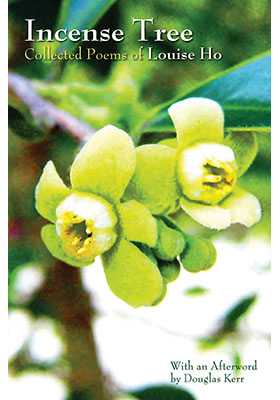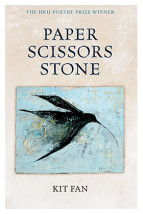Incense Tree
Collected Poems of Louise Ho
(沉香:何少韻詩集)
ISBN : 978-962-209-054-5
March 2009
188 pages, 5.5″ x 8.5″
- HK$120.00
Ebooks
Also Available on
Louise Marie Shew Wan Ho was born and brought up mainly in Hong Kong, and has lived in Mauritius, England, America and Australia. She was associate professor of English at the Chinese University of Hong Kong, teaching Shakespeare and English/
“In these poems written over four decades, Louise Ho is from beginning to end a poet of Hong Kong, whether her subjects are local or cosmopolitan. She has a strong sense of place, a sharp and unillusioned eye, and a voice in which English poetry takes on a distinctive tone and inflection, deriving from an experience that is both Chinese and global.” —Douglas Kerr, Professor of English, University of Hong Kong and author of Eastern Figures: Orient and Empire in British Writing
“Louise Ho’s is a strong distinctive voice and eye. She strives at all times for clarity, and attempts at all times to communicate effectively and directly with her reader. This is a poetry of hard, sharp outlines and edges. She has a capacity for public statement, and it is in this sphere that she shows her characteristic particular flair in poems about cosmopolitanness and rootlessness and in poems that engage in simple direct manner in religious and philosophical reflection, or that explore social evil and human violence.” —Michael Hollington, formerly Professor of English, University of New South Wales, Australia, and University of Toulouse, France




